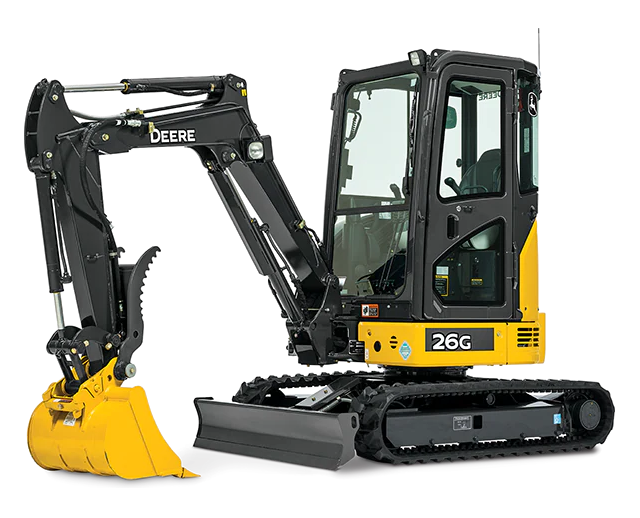Mini Excavator Rental: Compact Machines for Limited Spaces
Mini Excavator Rental: Compact Machines for Limited Spaces
Blog Article
Maximize Your Spending Plan by Recognizing the Costs Related To Building Devices Services
Recognizing the full extent of prices linked with building and construction equipment rentals is critical for maximizing your budget. While the initial rental charge might appear uncomplicated, many added costs-- such as transport, fuel additional charges, and upkeep-- can promptly collect, impacting your monetary preparation. Furthermore, being aware of numerous fees and the intricacies of rental contracts can assist avoid unforeseen monetary concerns. What techniques can be used to effectively take care of these costs and guarantee a more efficient rental experience?
Summary of Rental Expenses
When thinking about building devices services, understanding the connected costs is paramount for reliable budgeting and task preparation. Rental prices can vary considerably based upon numerous variables, consisting of tools type, period of service, and place. The first rental fee typically shows the devices's market demand and its linked operational capacities, affecting the overall expenditure.
In addition to the base rental price, secondary prices might develop, such as transport charges, gas additional charges, and upkeep costs. It is important to make up these added expenditures to properly evaluate the complete price of renting out equipment. The rental period can affect prices; longer leasings may qualify for affordable prices, while temporary rentals may incur greater everyday charges.

Malfunction of Rental Rates
A detailed understanding of rental rates is essential for service providers and project supervisors intending to maximize their budget plans. Rental rates for building tools typically contain several elements, including base prices, time-based fees, and use fees.
Base rates are the core fees connected with the leasing of the tools, commonly figured out by the type and size of the equipment. These prices can vary significantly, influenced by variables such as devices demand, availability, and local market trends. Time-based fees, which might be daily, weekly, or monthly, offer to accommodate different project timelines and rental periods.
In addition, rental prices might include use charges, which apply when devices is used past a defined threshold, ensuring that the rental business can represent deterioration. Seasonal need variations can likewise affect rental rates, with peak building periods usually regulating higher rates.
Furthermore, understanding the rental company's policies relating to maintenance and insurance coverage can provide further understanding right into the overall expense framework. By analyzing these elements, specialists can make educated decisions, making sure the choice of rental tools straightens with both task demands and budget restrictions.
Additional Costs to Think About
Comprehending the complexities of additional fees is vital for specialists to manage their general leasing costs properly. Beyond the conventional rental prices, numerous auxiliary charges can dramatically influence the overall price of devices rental. These charges often consist of delivery and pick-up charges, which can differ based on distance and logistics associated with transporting the devices to and from the work site.
Moreover, some rental companies may impose gas additional charges if the equipment is returned with less gas than when rented. It is likewise important to recognize potential cleaning costs, specifically for customized tools that calls for thorough maintenance after use.

Thoroughly reviewing the rental contract and making clear these additional fees upfront can aid specialists prevent unforeseen prices and ensure that budget plans stay undamaged throughout the job lifecycle.
Repair And Maintenance Expenses
Normal upkeep and fixing expenses are frequently ignored aspects that can substantially influence the overall expense of building and construction devices leasings. When renting tools, it is important to take into consideration not just the trackhoes for sale rental charges yet also the potential prices connected with maintaining the machinery in optimal operating problem.
Lots of rental business include fundamental upkeep as part of the rental arrangement; however, extra unexpected malfunctions or comprehensive repair services can bring about additional costs. It's important to evaluate the rental contract thoroughly to recognize what maintenance solutions are covered and what duties drop on the occupant.
Additionally, equipment that is not properly maintained can bring about ineffectiveness on duty site, possibly increasing and creating hold-ups project expenses. To alleviate these risks, it is a good idea to perform regular evaluations and maintain open interaction with the rental service provider pertaining to any issues that develop during use.
Insurance Policy and Liability Prices
Insurance coverage and responsibility costs are crucial elements that can dramatically influence the total expense of construction tools rentals (aerial lift rental). These expenses make sure that both the rental company and the client are protected from possible monetary losses arising from accidents, damage, or burglary throughout the rental period

Furthermore, customers need to recognize any kind of deductibles or exclusions in the insurance plan, as these can impact potential out-of-pocket expenses. Comprehending the terms of any kind of insurance protection is vital to stay clear of unforeseen costs. Eventually, budgeting for insurance and liability costs can help guarantee a smoother rental experience and secure versus monetary threats associated with building projects.
Final Thought
In final thought, a comprehensive understanding of the expenses associated with building equipment rentals is essential for efficient spending plan monitoring. Inevitably, informed decision-making concerning tools leasings contributes to the total success of building endeavors.
Rental costs can differ substantially based on a number of variables, consisting of equipment kind, duration of rental, and area (rental company near me). The rental duration can affect pricing; longer services may qualify for affordable rates, while temporary services may incur higher day-to-day costs
By performing complete research and engaging with trusted rental business, specialists can effectively navigate the intricacies of rental rates, inevitably optimizing their financial resources.
Beyond the common rental prices, numerous auxiliary costs can dramatically impact the complete cost of tools service. Rental firms typically offer liability insurance coverage that covers injuries to third parties or damages to property, while devices damage insurance policy can cover the cost of fixings or replacement if the rented tools is harmed.
Report this page